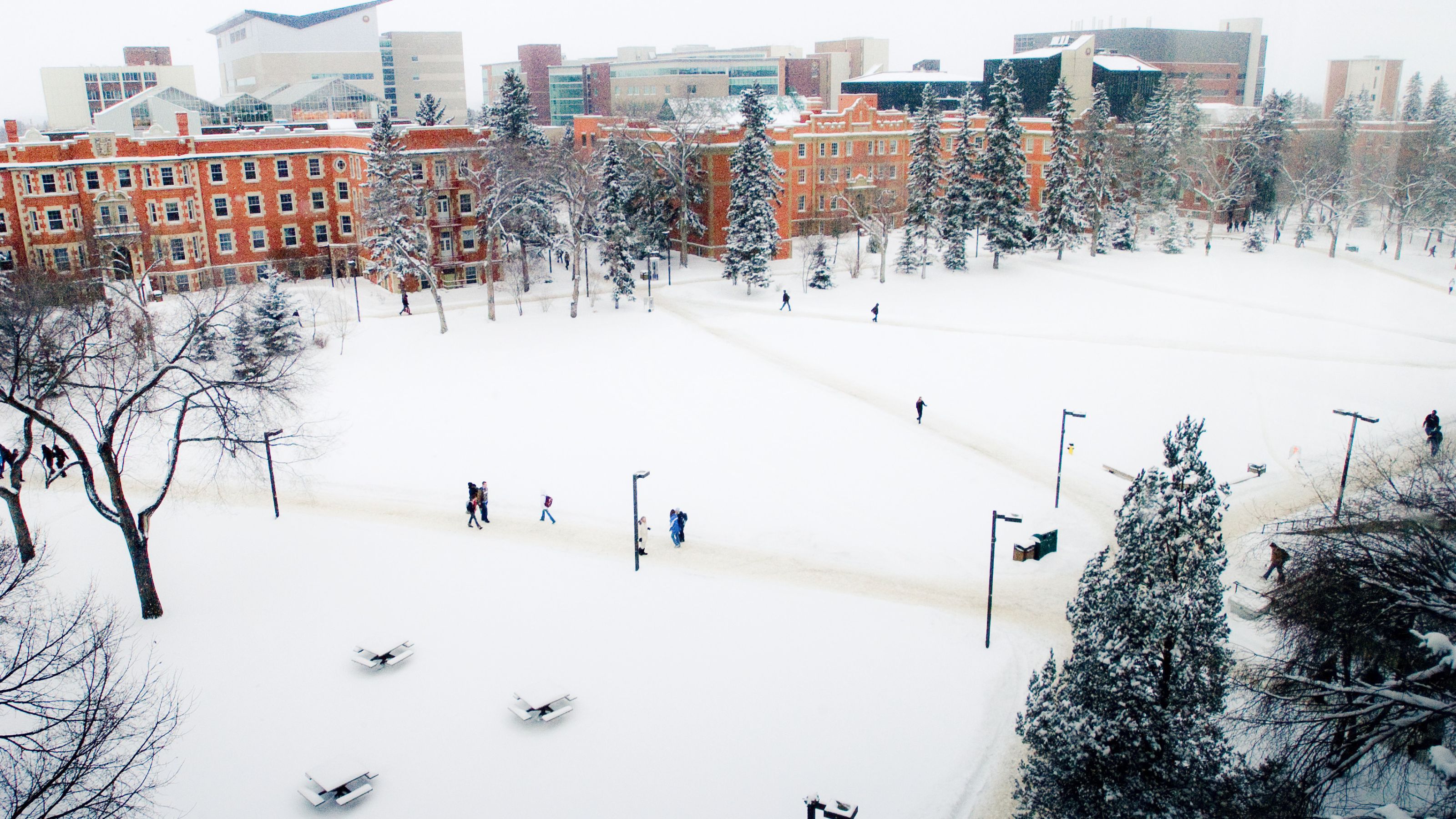We head into the end of the semester at a challenging time — both in the world and here at the University of Alberta. Every day, we wake up to news from the Middle East and beyond that affects many members of our community in deeply personal ways.
We are a diverse community with members from across Canada and around the world. Many members of our community have strongly held and widely divergent views about this conflict in the Middle East.
Over the past months, we’ve seen university community members express their views in many forums, including social media and demonstrations — a reflection of the university’s fundamental commitment to being a place of open inquiry, dialogue and debate, including difficult and challenging conversations. The 2019 Statement on Freedom of Expression at the University of Alberta reflects this core principle:
The University of Alberta remains committed to free expression in all forms of communication, including non-violent protest and dissent. The university is a place of free and open inquiry in all matters, and all members of the university community have the broadest possible latitude to speak, write, listen, view, challenge, profess, and learn. Members of the university community have the right to criticize and question other views expressed on our campuses, but may not obstruct or otherwise interfere with others’ freedom of expression. Debate or deliberation may not be suppressed because the ideas put forward are thought by some, or even most, to be offensive, unwise, immoral, or misguided. It is for individuals, not the institution, to make those judgments for themselves and to act not by seeking to suppress expression, but by openly and vigorously contesting the ideas they oppose. The university does not attempt to shield members of the university community from ideas or opinions they disagree with or find offensive. Mutual respect and civility are valued, but their absence does not constitute sufficient justification to limit free expression.
With such divergent views on our campuses regarding the conflict in the Middle East, the University Statement on Freedom of Expression makes it clear that it is not the role of the university (or its administrators speaking on behalf of the university) to purport to render judgment on this conflict. Instead, our primary role is to do all we can to ensure the safety of our community and foster conditions for respectful dialogue.
As we engage in open debate, discussion, and protest, I ask sincerely that we do all we can to approach one another with empathy, compassion and a willingness to engage in respectful and thoughtful dialogue. Let us work together as a community through this difficult time, always keeping our core values of respect and compassion at the forefront.
A brief overview of our community members' rights to free expression is included below, with further resources here.
- All academic staff members have the right to freedom of expression as outlined in the University Statement on Freedom of Expression. The collective agreement also provides for a right to academic freedom for most academic staff members, as outlined in Article 3 of the academic collective agreement and Article 11 of the Postdoctoral Fellows collective agreement. Academic freedom applies only to academic staff and postdoctoral fellows. It does not apply to support staff, other employees or students.
- Support staff and other employees have the right to freedom of expression as outlined in the University’s Statement on Freedom of Expression.
- Students and student groups have the right to freedom of expression as outlined in the University’s Statement on Freedom of Expression. In addition, as determined by the Alberta Court of Appeal in 2020, students also have a Charter right to freedom of expression.
- When university administrators speak on behalf of the U of A — including their faculty or administrative unit — they must also exercise reasonable care, demonstrate good professional judgment and speak in a manner consistent with the university’s key policies and public positions.
